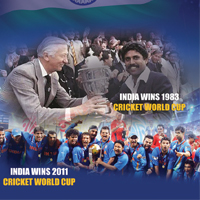From Underdogs to Champions: India’s World Cup Finals History (1983–2024)
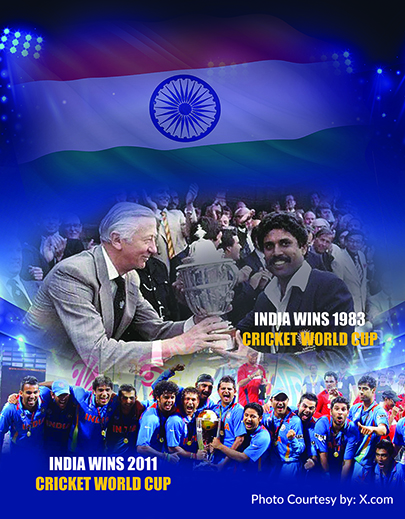
June 25, 1983, is a date forever etched in the hearts of Indian cricket fans. On that momentous day, the Indian cricket team, led by the charismatic all-rounder Kapil Dev, defied expectations and emerged victorious in the Cricket World Cup final. Their opponents? The legendary West Indies team has won two World Cups. This historic win at Lord’s, the hallowed turf of cricket, marked India’s first-ever World Cup title.
This victory transcended the realm of sports, igniting a passion for cricket. The entire nation rallied behind the team, and their success was a source of immense national pride.
But the journey hasn’t been without its share of triumphs. In more than four decades since that glorious 1983 win, the Indian cricket team has amassed an impressive collection of international trophies. Countless players have carved their names into cricketing folklore with exceptional performances, breaking records both domestically and internationally.
Let us delve deeper into this captivating narrative—a chronicle of Indian cricket’s evolution over the past 41 years, filled with moments of brilliance, resilience, and the unwavering spirit that continues to define Indian cricket on the world stage.
1983 ODI World Cup Final: India stunned everyone, including their own fans!
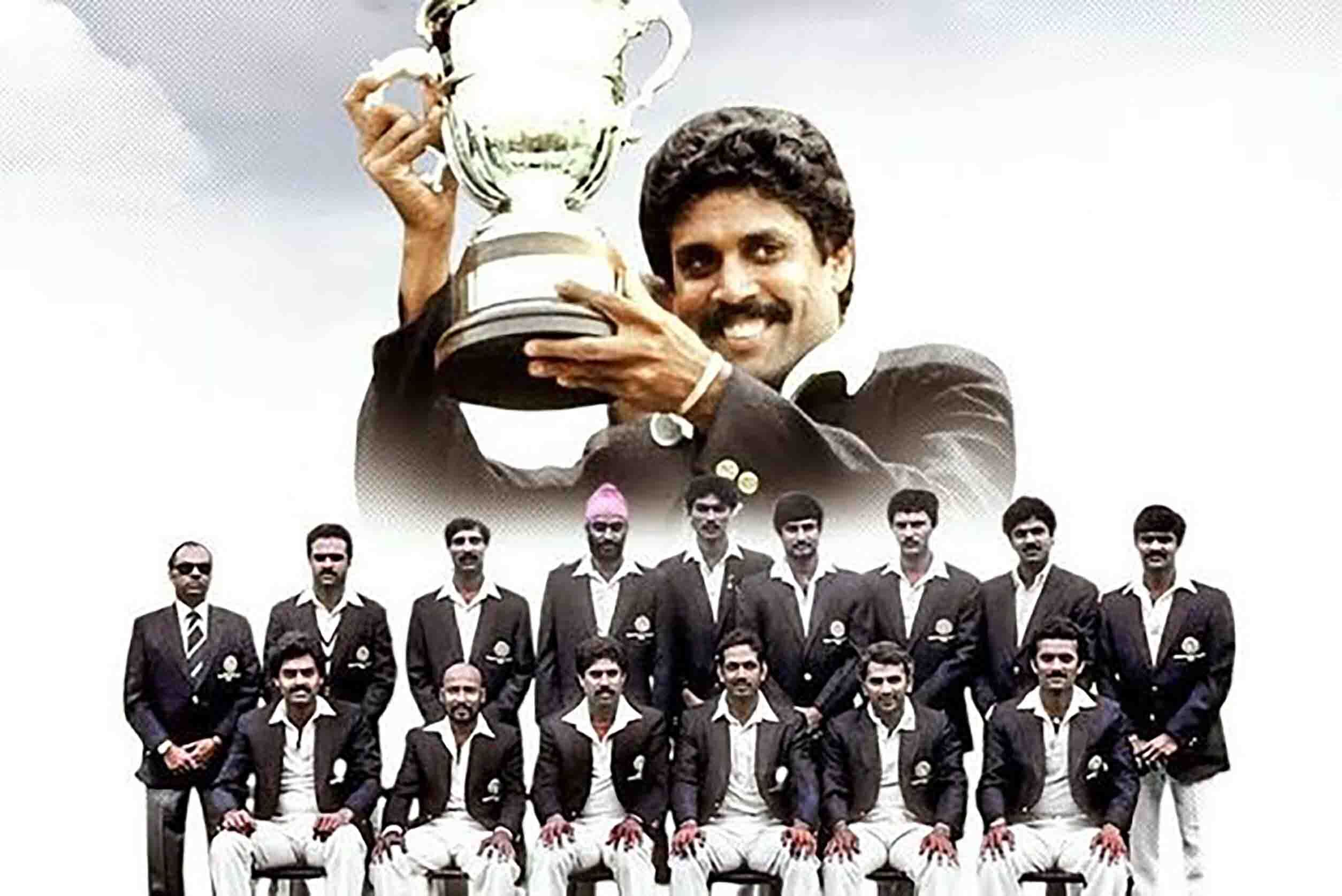 The year 1983 holds a special place in the hearts of Indian cricket fans. It was a year that defied expectations and etched a new chapter in the nation’s cricket history. Prior to this, India’s performance in the World Cup had been underwhelming, with just a single victory in their previous two attempts. The 1983 tournament featured several cricketing powerhouses, and on paper, India seemed like an underdog.
The year 1983 holds a special place in the hearts of Indian cricket fans. It was a year that defied expectations and etched a new chapter in the nation’s cricket history. Prior to this, India’s performance in the World Cup had been underwhelming, with just a single victory in their previous two attempts. The 1983 tournament featured several cricketing powerhouses, and on paper, India seemed like an underdog.
However, the Indian team, led by the charismatic Kapil Dev, had other plans. They fought their way through the tournament, showcasing moments of exceptional skill and unwavering determination. Against all odds, they managed to overcome stronger opponents and secure a place in the coveted finals, held at the historic Lord’s Cricket Ground in England.
They faced the mighty West Indies, a team known for its fearsome batting prowess. Setting a modest target of 183 runs, the Indian team knew they had a monumental task ahead of them. Many expected the West Indies batting line-up, a formidable force, to easily chase down the target.
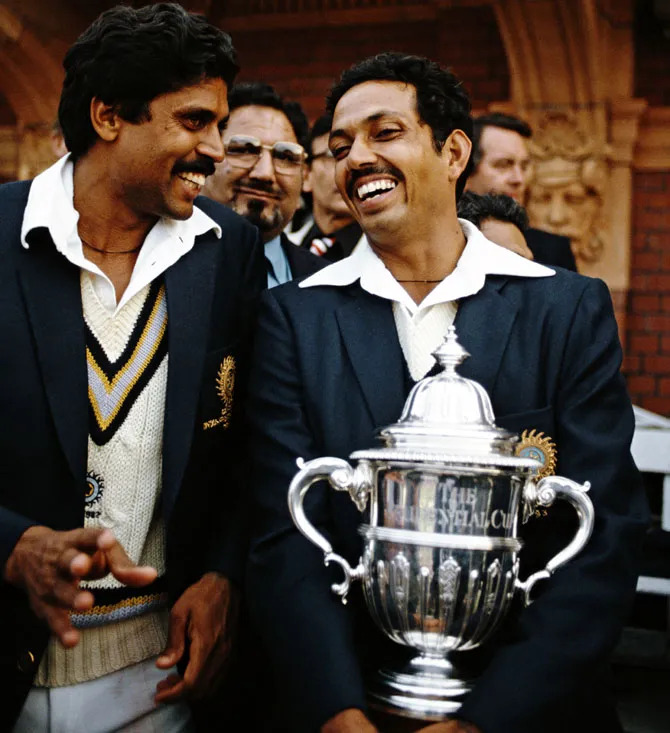 But the Indian bowlers, fueled by an unyielding spirit, displayed remarkable discipline and control. They kept the West Indies batsman in check, making it difficult for them to score freely. The turning point of the match arrived when Kapil Dev, with a sensational leaping catch, dismissed the dangerous Sir Viv Richards. This crucial moment shifted the momentum in India’s favor.
But the Indian bowlers, fueled by an unyielding spirit, displayed remarkable discipline and control. They kept the West Indies batsman in check, making it difficult for them to score freely. The turning point of the match arrived when Kapil Dev, with a sensational leaping catch, dismissed the dangerous Sir Viv Richards. This crucial moment shifted the momentum in India’s favor.
The West Indies batting line-up crumbled under pressure, eventually falling short of the target by a significant margin. India, the underdogs who had surprised everyone throughout the tournament, pulled off a historic victory. A wave of jubilation swept the nation as they crowned themselves World Champions for the first time.
This win transcended the realm of sport. It ignited a newfound passion for cricket in India, transforming it from a popular pastime into a national obsession. The 1983 World Cup victory became more than just a sporting achievement; it was a symbol of resilience, self-belief, and the ability to achieve the seemingly impossible. It was a victory that cemented India’s place on the world cricket stage and inspired generations of future cricketers.
The 2003 ODI World Cup Final: A Dawning Hope Crushed by Australia’s Might
The 2003 Cricket World Cup final marked a significant turning point for Indian cricket. After a period of inconsistency in previous tournaments, the Indian team, under the leadership of Sourav Ganguly, embarked on a remarkable journey that culminated in their second World Cup final appearance since their historic victory in 1983.
A potent blend of experience and youthful exuberance fueled this journey. Seasoned campaigners like Sachin Tendulkar, who emerged as the tournament’s leading run scorer, provided stability and guidance. Meanwhile, young talents like Zaheer Khan and Javagal Srinath impressed with their pace bowling, forming a formidable bowling attack alongside Srinath.
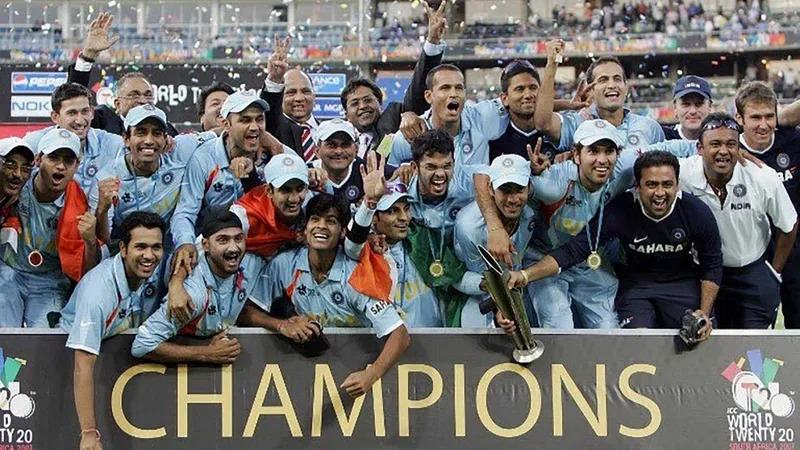
Their group stage performance was nothing short of dominant. They steamrolled through their opponents, showcasing a renewed spirit and a hunger for success. However, the ultimate challenge awaited them in the form of Australia, the defending champions, at the Wanderers Stadium in Johannesburg.
The final itself proved to be a one-sided affair. Australian captain Ricky Ponting stole the show with a magnificent unbeaten knock of 140 runs. His innings formed the backbone of a mammoth Australian total of 359 runs for a loss of just two wickets.
Chasing a seemingly insurmountable target, India’s batting faltered from the very beginning. The loss of the talismanic Sachin Tendulkar in the first over itself was a major blow to their morale. While Virender Sehwag and Rahul Dravid offered some resistance, the Indian batting lineup never truly recovered from the early setbacks. Their innings eventually folded for 234 runs, handing a comprehensive victory to the Australian juggernaut.
The 2003 World Cup final, though a heartbreaking defeat for India, marked a significant step forward for the team. It served as a springboard for their future success, signaling the dawn of a new era in Indian cricket.
The rise of the young guns: India’s triumph in the 2007 T20 World Cup
The year 2007 witnessed a watershed moment in the cricketing world. The inaugural edition of the ICC Twenty20 World Cup, held in South Africa, ushered in a new era for the sport, one characterized by fast-paced action, explosive batting, and innovative bowling strategies. This tournament also proved to be a turning point for Indian cricket.
Just a few months prior, the Indian team had suffered a humiliating exit from the ODI World Cup, failing to progress beyond the group stage. This setback led to a significant overhaul, with many senior players opting out of the T20 format. This decision opened the door for a fresh-faced Indian team led by the relatively inexperienced MS Dhoni, later to be known as “Captain Cool.”
While the squad included established names such as Yuvraj Singh, Harbhajan Singh, Virender Sehwag, and Ajit Agarkar, the core of the team consisted of exciting young talents. This youthful exuberance translated into an electrifying brand of cricket on the field. The team played with a fearless spirit, displaying remarkable skill and determination throughout the tournament. Their dominant performances propelled them on a remarkable journey, culminating in a place in the grand finale.
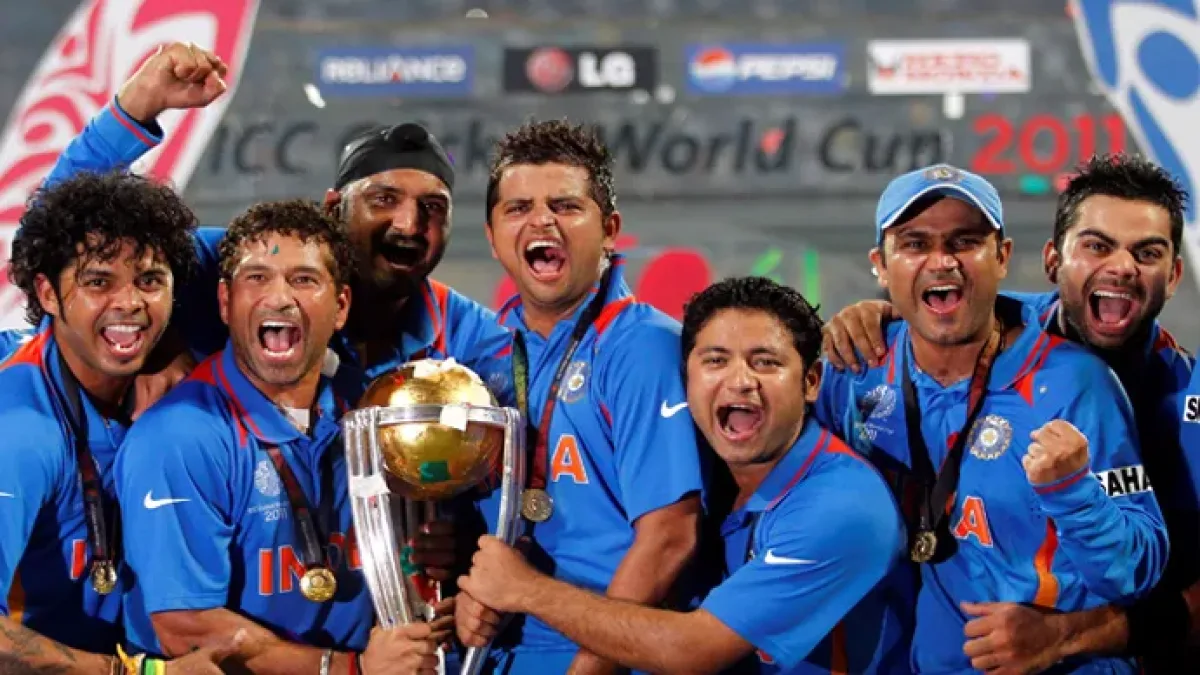
The final was a nail-biting encounter against arch-rival Pakistan. India, batting first, set a competitive target of 157 runs on the scoreboard. Openers Gautam Gambhir and Rohit Sharma played crucial roles in this effort. Gambhir anchored the innings with a solid 75 runs, while Sharma provided a vital late flourish with a quickfire cameo.
Pakistan’s chase began brightly, but the Indian bowling attack, spearheaded by Irfan Pathan’s three-wicket haul and RP Singh’s decisive spell, managed to restrict their progress. The experienced Misbah-ul-Haq, however, threatened to snatch victory away from India with his late onslaught of powerful shots. However, the young Joginder Sharma bowled the final over of the match, etching it in cricketing folklore. Sharma held his nerve under immense pressure, dismissing Misbah with the penultimate delivery and securing a thrilling five-run victory for India.
The triumph in the 2007 T20 World Cup marked the beginning of a glorious era for Indian cricket. This young team, led by the composed MS Dhoni, captured the imagination of the nation and laid the foundation for a period of sustained dominance in the shortest format of the game.
The 2011 Cricket World Cup: A Night Etched in Indian Memory
The 2011 Cricket World Cup, jointly hosted by India, Sri Lanka, and Bangladesh, was a watershed moment for Indian cricket. With the tournament on home soil, the Indian team, led by the enigmatic MS Dhoni, entered the competition as one of the frontrunners. Throughout the tournament, they lived up to that expectation, displaying remarkable consistency. Key victories against cricketing giants Australia in the quarterfinal and arch-rivals Pakistan in the semi-final propelled them towards the ultimate challenge—the final.
The iconic Wankhede Stadium in Mumbai set the stage for the grand finale. Sri Lanka, batting first, put up a formidable total of 274 runs, thanks to a magnificent century by Mahela Jayawardene. Chasing this challenging target, India’s start was far from ideal. Virender Sehwag and the legendary Sachin Tendulkar dismissed the openers cheaply, leaving them with a mountain to climb.
However, the Indian batting lineup displayed immense resilience. Gautam Gambhir stood firm, anchoring the innings with a composed knock of 97 runs. But it was the captain, MS Dhoni, who stole the show. With unwavering courage, he delivered a match-winning innings of 91 runs that remained unbeaten. Every Indian cricket fan will forever remember the final act of the drama: Dhoni launching the final ball of the match for a towering six, sending the crowd and the entire nation into a frenzy.
This victory transcended the sport’s boundaries. It marked the culmination of a 28-year-long wait for India to reclaim the coveted Cricket World Cup trophy. It cemented MS Dhoni’s legacy as one of India’s greatest captains, a leader who could deliver under immense pressure. More importantly, it fulfilled the dreams of millions of passionate Indian fans who had yearned for this moment for nearly three decades. The win also served as a fitting tribute to Sachin Tendulkar, the master batsman who was playing in his last World Cup. Indian cricket history will forever remember the 2011 World Cup victory as a golden chapter.
2014 T20 World Cup: A dominant run ends in heartbreak
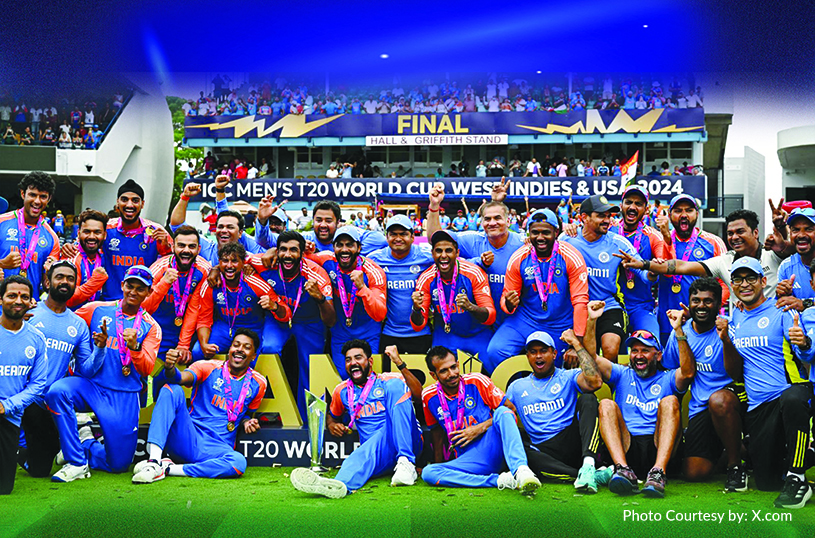
The 2014 T20 World Cup, held in Bangladesh, witnessed a remarkable journey for the Indian cricket team. They displayed unparalleled dominance throughout the group stages and knockout rounds, leaving a trail of defeated opponents in their wake. Powerhouses such as Pakistan, the West Indies, Australia, and South Africa all fell victim to the Indian team’s might.
A major factor behind India’s success was the phenomenal form of Virat Kohli. Throughout the tournament, he exhibited sublime batting skills, scoring consistently and playing a pivotal role in securing victories. His consistent contributions were a cornerstone of India’s dominant run.
However, despite entering the finals as clear favorites, the dream run for India was destined for a heartbreaking conclusion. Sri Lanka’s bowlers, led by the legendary Lasith Malinga, had other plans. They displayed exceptional planning and strategic brilliance, effectively shutting down the Indian batting line-up. The Sri Lankan bowling attack, spearheaded by Malinga’s pace and guile, restricted every Indian batsman except Kohli. Notably, Yuvraj Singh, a crucial member of the Indian batting order, struggled to score freely.
The 2023 ODI World Cup: A Tale of Redemption and Heartbreak on Home Soil
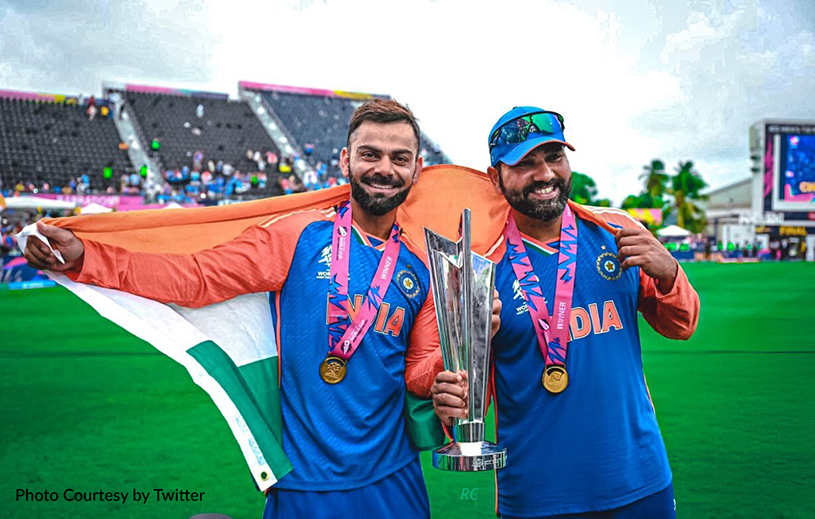
The 2023 Cricket World Cup, hosted by India, was a thrilling spectacle that kept fans on the edge of their seats throughout the entire tournament. Team India, led by the ever-reliable Rohit Sharma, displayed unmatched dominance. They cruised through the group stages, dismantling their opponents with clinical precision. The memories of the 2019 World Cup semi-final defeat against New Zealand seemed like a distant echo as India comfortably dispatched the Kiwis once again to book their place in the coveted final.
Meanwhile, Australia endured a shaky start to their campaign. Early losses threatened to derail their World Cup dreams. However, the resilient Aussies displayed remarkable grit and determination. They clawed their way back into contention, winning crucial matches and eventually securing their spot in the final against India at the majestic Narendra Modi Stadium in Ahmedabad.
A dream finale—a clash between two cricketing giants—was about to unfold. As millions of passionate fans tuned in from around the world, the atmosphere crackled with anticipation. India, batting first, opted for a cautious approach. While they weren’t able to post a mammoth total, contributions from the top order, including Rohit Sharma, Virat Kohli, and KL Rahul, ensured a respectable score of 240 runs on the board.
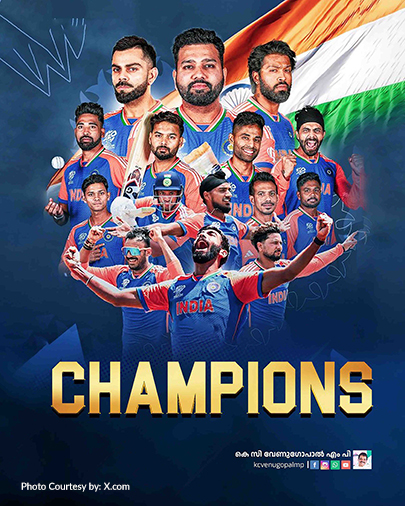 Australia’s chase began in a tense manner. The Indian bowlers struck early, claiming crucial wickets and putting the Aussies under immense pressure. The odds seemed stacked against them. However, this is when the hero of the tournament emerged. Travis Head, with an inning for the ages, defied the Indian attack. He played a scintillating knock, scoring a staggering 137 runs off just 120 deliveries. His single-handed knock shifted the momentum in Australia’s favour and steered them towards a remarkable victory.
Australia’s chase began in a tense manner. The Indian bowlers struck early, claiming crucial wickets and putting the Aussies under immense pressure. The odds seemed stacked against them. However, this is when the hero of the tournament emerged. Travis Head, with an inning for the ages, defied the Indian attack. He played a scintillating knock, scoring a staggering 137 runs off just 120 deliveries. His single-handed knock shifted the momentum in Australia’s favour and steered them towards a remarkable victory.
Cricketing history will forever mark this match. It was a story of redemption for Australia, who bounced back from a shaky start to claim their sixth ODI World Cup title. For India, it was a heartbreaking end to a dominant tournament. They will rue the missed opportunities and the valiant knock by Travis Head that snatched victory from their grasps.
2024: Second T20 World Cup Triumph
“In a heart-stopping encounter that unfolded at the Kensington Oval in Barbados, the Indian cricket team emerged victorious against South Africa, clinching their second ICC Men’s T20 World Cup title.”
The match was a tense back-and-forth battle, with momentum shifting rapidly between the two sides. Despite setting a challenging target of 177 runs, the Indian bowlers displayed remarkable composure under pressure. They managed to overcome a fiery spell from Heinrich Klaasen in the middle overs, ultimately defending their total successfully. This triumph not only marks India’s second T20 World Cup victory but also brings an end to their 11-year-long wait for a major ICC trophy.

